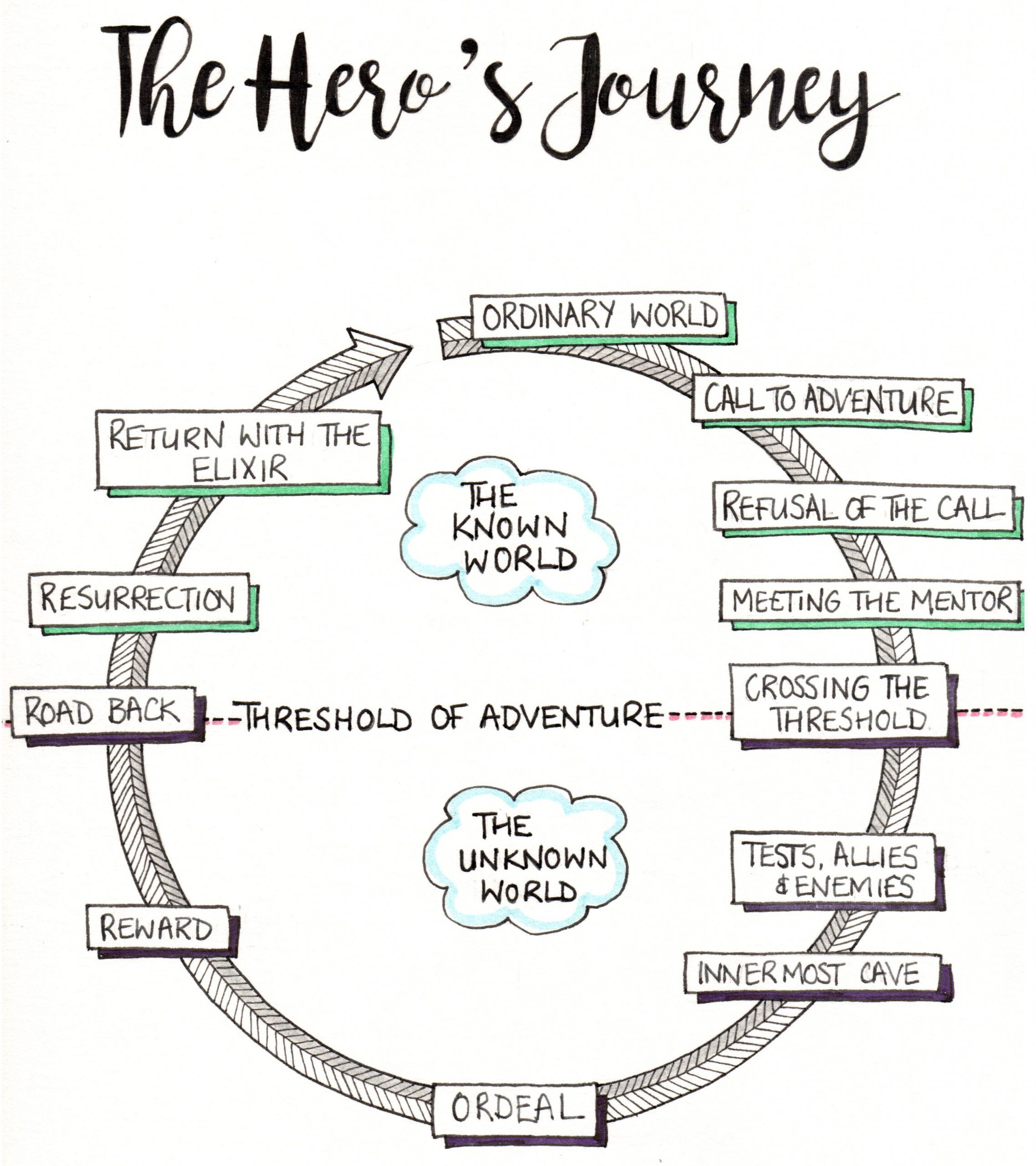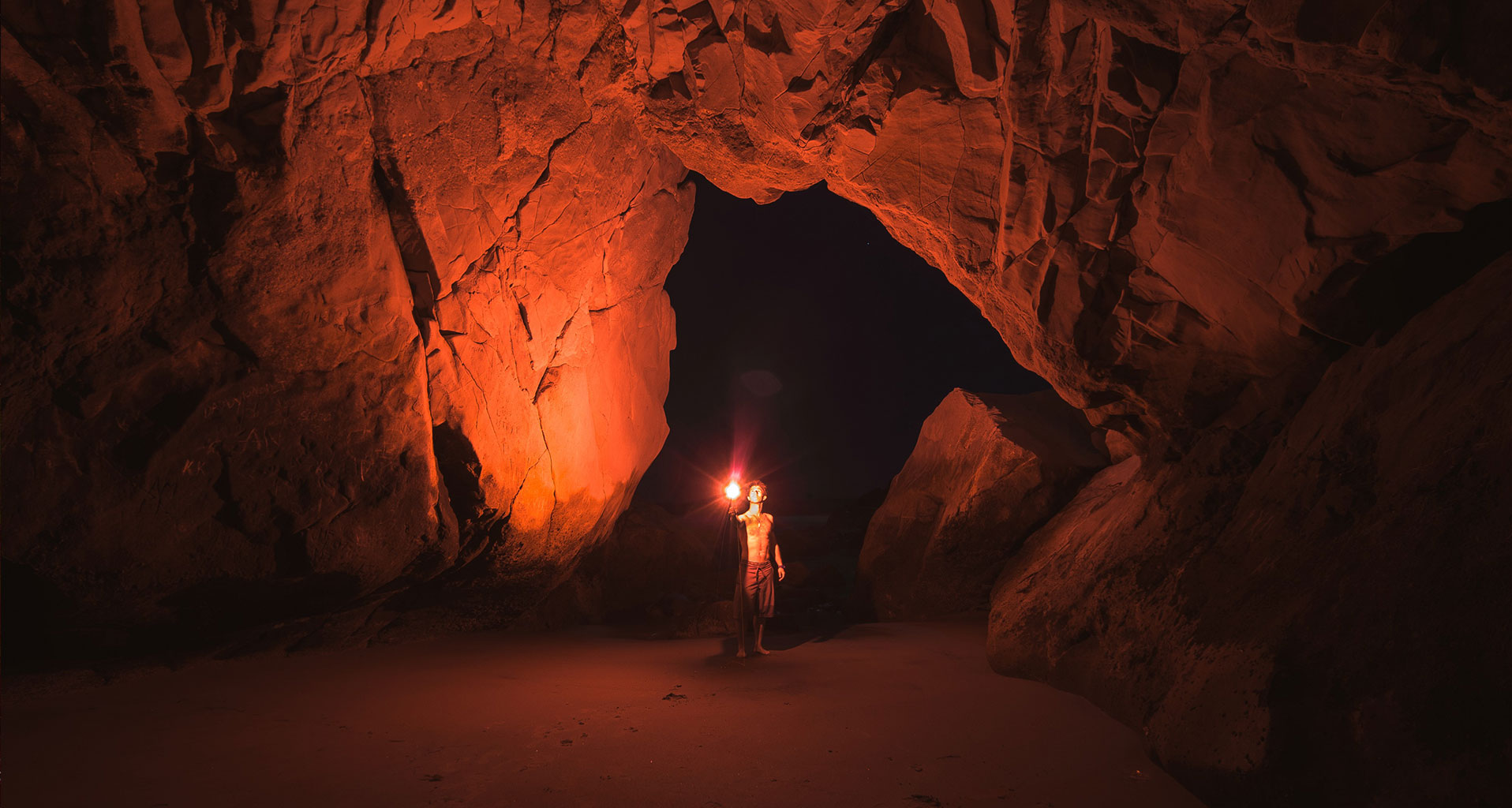Of late I have been studying Joseph Campbell’s “The Hero’s Journey” for two reasons. One: as a story-telling device, the Hero’s Journey is a remarkable template for exploring the human experience—one that never fails to strike an emotional chord with readers, and secondly, if not more importantly: as a personal development tool.
The Hero’s Journey is a truly fascinating work, compiling Campbell’s exhaustive research into Myth and human experience. His research spans all of written history and includes nearly every story-telling civilization in existence.
During his exploration, Campbell found a common link within all our stories, regardless of race, location or time. He noticed that the stories we tell ourselves (our myths and parables) follow the same predictable pattern. In fact, this pattern is so consistent that key stages of the journey are always present and follow an ordered sequence.
In fiction, the Hero’s Journey allows us to emotionally connect with a story in a very intrinsic way. From a personal development perspective, the Hero’s Journey is so relatable because it is built into the very essence of who we are as human beings.
We are all on the same journey; though our paths may be different.
The human story is one of departure and return, exploration of self and our place in the world around us. In order to grow and to experience true happiness or bliss (as Campbell called it) one must be prepared to step outside the known world and enter the unknown. Our ability to grow and be rewarded is directly related to our willingness to be tested and challenged in the face of fear and uncertainty.
Campbell said, “Follow your bliss and the universe will open doors where there were only walls”.
In fact, the only way to be happy is to answer the call to the adventure in our own lives. Sadly, so many of us never answer this call, making excuse after excuse until the way forward is lost.
Interestingly, the refusal of the call in of itself is not a negative thing. It is a necessary first step. It tells us that our goal is just scary enough to be worth the journey. But to get it, we must leave the safe and ordinary world behind and enter the unknown.
Nothing of true value comes without this initial first step. We must be prepared to cross the threshold and step into the darkest cave, to face ordeals, threats and our own self doubts in order to claim the reward.
As human beings we innately understand that our happiness depends upon accepting the journey and being the hero of our own story. Therefore, our most beloved stories are the ones that reflect this lesson.
Whether it is Luke in Star Wars, or Spiderman’s Peter Parker or Alice in Wonderland, they all wish to be more, but they never truly believe it is possible. They repeatedly refuse the call to action, until finally, no option is left but to step over into the unknown. Once the call to action is answered, the path becomes clearer and a way is made.
We sympathize with these characters because they are us.
Contained within this first step is the power to create the path, itself. And with each additional step we are initiated by mentors, unexpected assistance and the acquisition of new skills. We continue to grow until we are ready to tackle the final obstacle and claim the prize.
And having attained the prize, we are reborn and return to the ordinary world, in bliss; thereby enriching it.
This cycle of Departure, Initiation and Return is a never-ending journey of self-discovery, joy and happiness. It is what gives life meaning and a reason for being.

What is your story? Maybe its time to tell yourself a new one and answer the call that you have been hearing your entire life?
Take the first step, and the way will be found.

Greetings! Very helpful advice within this article! It is the little changes which will make the most significant changes. Thanks for sharing! Addie Elihu Wong